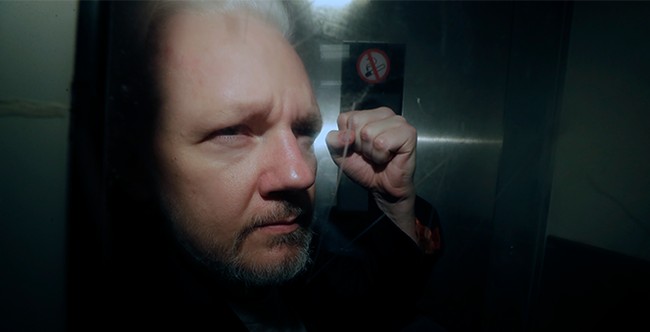
Wikileaks founder Julian Assange has been granted the opportunity to appeal his extradition case to the United Kingdom’s High Court. The development comes as Assange has been languishing in prison after being arrested outside the Ecuadorian Embassy in London after the country withdrew his asylum status in 2019.
This development comes as President Joe Biden is facing calls to drop the case against Assange.
London’s High Court has ruled that Julian Assange has the right to appeal in his final challenge against extradition to the United States.
The legal victory for the WikiLeaks founder was cheered by dozens of his supporters as they rallied outside the court in the British capital.
Some beat drums, some shouted “drop the case,” while other supporters held placards reading “Let him go Joe,” in reference to US President Joe Biden.
Assange’s legal team argued in Monday’s hearing that the judges, Victoria Sharp and Jeremy Johnson, should not accept the assurances given by US prosecutors that he could seek to rely on the rights and protections under the US First Amendment.
His team made the case that, if extradited, Assange could be discriminated against on the basis of his nationality, as an Australian-born foreign national.
In a short ruling, the judges said the US submissions were not sufficient, granting Assange permission to a full appeal in relation to the legal points on freedom of speech and nationality.
A date has not yet been set for the next hearing.
Assange is facing 18 criminal charges related to his release of thousands of confidential documents exposing critical information about the United States’ wars in Iraq and Afghanistan, and diplomatic cables in 2010 and 2011. He sought asylum in the Ecuadorian Embassy on June 19, 2012. If convicted, he could be facing the rest of his life in prison.
His supporters argue that Assange’s actions were protected by the First Amendment and were matters of public interest. Critics accuse him of placing the lives of government agents in danger.
Stella Assange, Julian’s wife, said, “The US case is offensive, it offends our democratic principles. It offends our right to know it is an attack on journalists everywhere.”
Alan Rusbridger, editor of Prospect Magazine, characterized the effort to prosecute Assange as “a very belated attempt to punish whistleblowers and discourage journalists, whether conventional or not, from poking their noses where they’re not welcome.”
Last month, President Biden indicated that he is “considering” a request from Australia to drop charges against Assange.
Biden made the admission during a meeting with Japanese Prime Minister Fumio Kishida at the White House on Wednesday. Assange is currently facing 17 espionage charges and one charge of computer misuse, exposing him to a maximum of 175 years in prison.
“We’re considering it,” Biden said in response to a question as to whether the U.S. would accept a request from Australia to drop charges against Assange.
In February, Australia’s parliament passed a measure with the support of Prime Minister Anthony Albanese demanding the return of Assange back to his native homeland.
“People will have a range of views about Mr Assange’s conduct,” Albanese said. “But regardless of where people stand, this thing cannot just go on and on and on indefinitely.”
U.S. prosecutors have wanted Assange over his involvement in the publication of classified documents through WikiLeaks, which released a vast trove of classified materials, including diplomatic cables and military documents, exposing sensitive information about U.S. military operations and diplomatic activities.
The date and time of Assange’s next hearing are not yet known, but this development indicates that the saga surrounding the journalist is headed into another phase that could ultimately determine his fate.